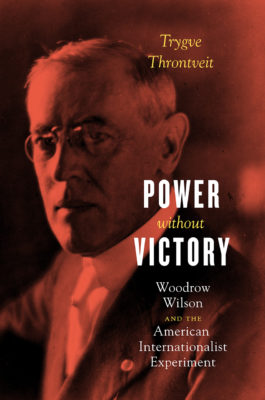Editor's Note
Gene Zubovich is Assistant Professor of History at Mississippi State University. He is the author of the forthcoming book, The Global Gospel: Christian Human Rights and the Fracturing of the Twentieth-Century United States. He has published and forthcoming articles on American foreign relations, human rights, and religion in The Journal of American History, Journal of the History of Ideas, Diplomatic History, Immanent Frame, Aeon, and Religion and Politics. You can read his academic and popular pieces on genezubovich.com and follow him on Twitter @genezubovich.
It is fitting that in an era of uncertainty about the future of the international order, historians are returning to the role the United States has played in establishing the system that is currently under threat. The complicated patchwork typically called “liberal internationalism” had once seemed triumphant and inevitable, especially after the end of the Cold War. But since 1989 we have witnessed the rise of China as a major world power, we have endured the “forever wars” in the Middle East and, more recently, we have witnessed a populist wave leading to the divisive and chaotic phenomena of the Trump presidency and Brexit.
Historians have been jumping into the public debates over international affairs in recent years. In this uncertain moment they are reexamining the ideological and political origins of the system that seems to be passing from the scene. And some of the most interesting and profound contributions to the debates over American power in the world have come from those working at the intersection of intellectual history and the history of US and the World.
 It is in this historical and methodological context that I have the pleasure of introducing Trygve Throntveit’s Power Without Victory: Woodrow Wilson and the American Internationalist Experiment.
It is in this historical and methodological context that I have the pleasure of introducing Trygve Throntveit’s Power Without Victory: Woodrow Wilson and the American Internationalist Experiment.
It is written as an “operative history of ideas,” as Throntveit intriguingly puts it. This interesting and thought-provoking book revisits the role of Woodrow Wilson in the debates over international affairs in the World War I era. In it, Throntveit argues that Wilson was not a “Wilsonian” as the term is widely understood. Rather, he makes a case that Wilson is best understood against the backdrop of philosophical pragmatism in the tradition of William James. But the book is more than a historical contribution to our understanding of an influential intellectual and politician. It is an impassioned “intervention in our contemporary political culture,” Throntveit writes. “Wilson formulated a sweeping democratic vision for the United States and its global role,” which has important lessons for us today.
Many readers of this blog will already be familiar with Throntveit’s impressive body of work. Trygve Throntveit is Lecturer in Organizational Leadership, Policy, and Development and Dean’s Fellow for Civic Studies at the University of Minnesota College of Education and Human Development, where he edits The Good Society: A Journal of Civic Studies. He is the author of several articles and book chapters on the history of American politics, diplomacy, and social thought, and the winner of the American Political Science Association’s Richard E. Neustadt Award (from the Presidents and Executive Politics Section) for Power without Victory. His first book was William James and the Quest for an Ethical Republic (Palgrave Macmillan, 2014), and his current projects include The Essential Woodrow Wilson, co-edited with John Milton Cooper, Jr. (Princeton University Press), and two book-length projects, respectively and tentatively titled Pragmatism and Civic Renewal and The Last Internationalist: Quincy Wright and the Alternative American Century.

0